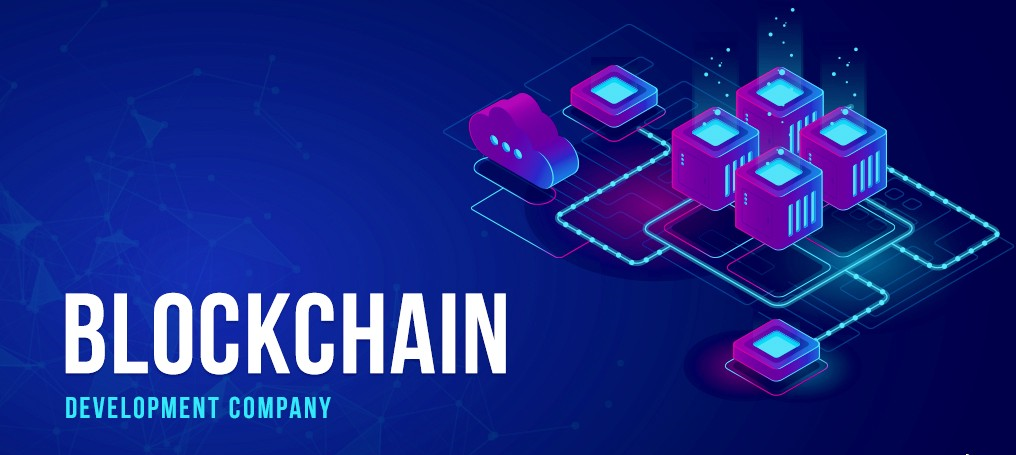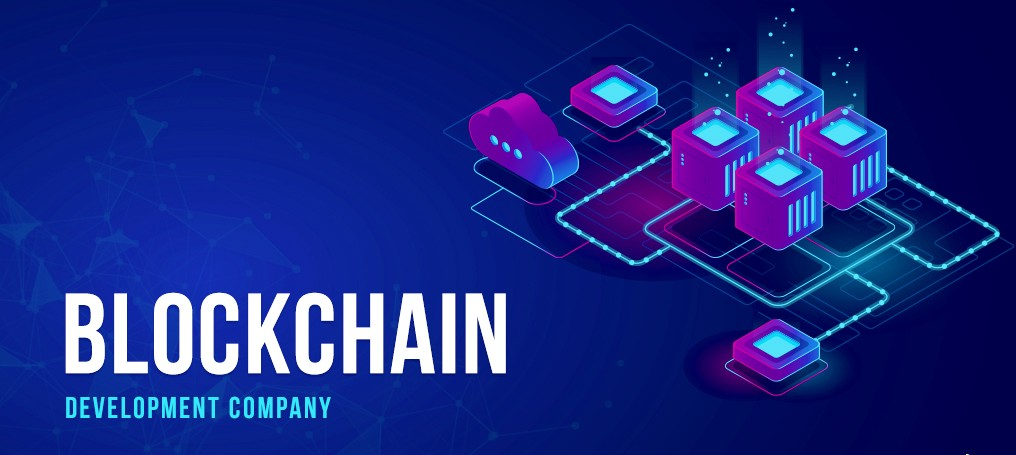A Blockchain Development Company specializes in creating, deploying, and managing blockchain-based solutions. These companies offer services like smart contract development and blockchain consulting.
Blockchain technology is transforming industries by providing secure, transparent, and decentralized solutions. Companies in this field develop applications that enhance business operations. They offer services such as creating custom blockchain platforms, developing decentralized applications (dApps), and integrating blockchain with existing systems.
Their expertise includes various blockchain frameworks like Ethereum, Hyperledger, and Binance Smart Chain. By leveraging blockchain technology, businesses can achieve greater transparency, security, and efficiency. Blockchain development companies ensure that solutions are scalable and meet the specific needs of their clients. This makes them invaluable partners in the modern digital landscape.

Credit: www.metadiac.com
Introduction To Blockchain
Blockchain technology is transforming the digital landscape. It offers decentralized solutions, enhancing security and transparency. Understanding its foundation is crucial for leveraging its potential.
What Is Blockchain?
Blockchain is a decentralized digital ledger. It records transactions across multiple computers. This ensures that the record is secure and transparent.
Each transaction is called a “block”. These blocks are linked or “chained” together, hence the name blockchain. This chain of blocks cannot be altered. It provides a secure way to verify and trace transactions.
History And Evolution
Blockchain’s concept originated in the early 1990s. Stuart Haber and W. Scott Stornetta first introduced it. They wanted to create a system where document timestamps could not be tampered with.
In 2008, an individual or group known as Satoshi Nakamoto released a whitepaper on Bitcoin. This introduced blockchain as the underlying technology for Bitcoin. It marked the beginning of blockchain’s evolution.
Over the years, blockchain has evolved. It now supports various applications beyond cryptocurrencies. Industries like finance, supply chain, and healthcare are adopting blockchain solutions.
Key Milestones:
| Year | Event |
|---|---|
| 1991 | The concept of blockchain was introduced by Haber and Stornetta |
| 2008 | Bitcoin whitepaper published by Satoshi Nakamoto |
| 2009 | Bitcoin network launched |
| 2015 | Ethereum network launched, introducing smart contracts |
Blockchain continues to innovate. It holds promise for secure, transparent transactions. Understanding its basics is key to harnessing its potential.
Core Components
Blockchain technology is transforming industries by providing secure and transparent solutions. A Blockchain Development Company focuses on the core components that make this technology revolutionary.
Distributed Ledger
A distributed ledger is a database shared across multiple nodes. It ensures that all participants have the same data. This ledger is decentralized and eliminates the need for a central authority.
The distributed ledger records transactions securely. It uses cryptographic techniques to ensure data integrity. This system is highly transparent and tamper-proof.
| Feature | Description |
|---|---|
| Decentralization | Data is stored across multiple nodes |
| Security | Cryptographic techniques protect data |
| Transparency | All participants have the same data |
Smart Contracts
Smart contracts are self-executing contracts with terms directly written into code. These contracts automatically execute when conditions are met. They are stored on the blockchain and are immutable.
Smart contracts reduce the need for intermediaries. They ensure trust and transparency in transactions. Businesses use smart contracts for various applications, including supply chain management and financial services.
- Self-executing contracts
- Stored on the blockchain
- Immutable and transparent
function transferOwnership(address newOwner) public {
require(msg.sender == currentOwner);
currentOwner = newOwner;
}
This code snippet shows a basic smart contract for transferring ownership. It ensures that only the current owner can transfer ownership.
Benefits Of Blockchain
Blockchain technology offers numerous advantages for businesses. It enhances security and transparency. These benefits make it an ideal choice for various industries.
Enhanced Security
Blockchain provides strong security features. Each transaction is encrypted. This ensures that data remains secure. The decentralized nature of blockchain adds another layer of protection. There is no single point of failure.
In a traditional system, data breaches are common. Blockchain reduces this risk. It uses complex algorithms to secure data. This makes it nearly impossible to alter or hack.
| Traditional Systems | Blockchain Systems |
|---|---|
| Single point of failure | No single point of failure |
| Centralized | Decentralized |
| Easier to hack | Harder to hack |
Transparency
Blockchain ensures high transparency. Each transaction is recorded on a public ledger. This ledger is accessible to everyone in the network. It makes auditing easy.
Transparency builds trust. Users can verify transactions independently. This reduces the need for intermediaries. It also speeds up the process.
- Public ledger for transactions
- Easy to audit
- Reduces the need for intermediaries
- Speeds up processes
In summary, blockchain technology offers significant benefits. Enhanced security and transparency are key advantages. These features make blockchain a powerful tool for businesses.
Blockchain In Various Industries
Blockchain technology is changing many industries. It provides secure and transparent solutions.
This technology is popular in sectors like finance and healthcare.
Let’s explore how blockchain is used in these fields.
Finance
Blockchain is revolutionizing the finance industry. It offers secure and transparent transactions.
Banks use blockchain for safe and quick money transfers.
The technology reduces fraud and errors.
Here are some key benefits of blockchain in finance:
- Faster transactions: No need for middlemen.
- Lower costs: Reduces fees.
- Increased security: Protects against fraud.
Blockchain also helps in smart contracts. These contracts execute automatically when conditions are met.
This removes the need for intermediaries.
Healthcare
Blockchain is also transforming the healthcare industry. It ensures secure and private patient records.
Doctors can access patient data quickly and safely.
Here are some key benefits of blockchain in healthcare:
- Secure data storage: Patient records are safe.
- Efficient data sharing: Easier to share patient information.
- Improved patient care: Quick access to medical history.
Blockchain also helps in tracking medical supplies. This ensures the authenticity and safety of drugs.
It reduces the risk of counterfeit medicines.
Choosing A Blockchain Development Company
Selecting the right blockchain development company is crucial. The right partner ensures your project is successful and secure. This section will guide you in making an informed decision.
Key Qualities
Look for these key qualities in a blockchain development company:
- Experience: Check their years in the industry.
- Expertise: Ensure they specialize in blockchain technology.
- Portfolio: Review their past projects and case studies.
- Security: They must prioritize security in their solutions.
- Client Feedback: Read reviews and testimonials from previous clients.
Important Questions
Ask these important questions when interviewing a blockchain development company:
- What is your experience with blockchain technology?
- Can you provide case studies of similar projects?
- How do you ensure the security of your blockchain solutions?
- What is your development process?
- How do you handle project timelines and deadlines?
- Can you provide references from past clients?
| Quality | Importance |
|---|---|
| Experience | High |
| Expertise | High |
| Portfolio | Medium |
| Security | High |
| Client Feedback | Medium |

Credit: www.securitytokenizer.io
Challenges In Blockchain Development
Blockchain technology is revolutionary but comes with its own set of challenges. Developers face multiple hurdles while creating blockchain solutions. These challenges range from scalability to regulatory issues. Understanding these problems is crucial for effective blockchain development.
Scalability
One of the most significant challenges is scalability. Blockchain networks often struggle with handling large volumes of transactions. As the number of users increases, the network slows down.
To illustrate, let’s compare the transaction speeds of popular blockchains:
| Blockchain | Transactions per Second (TPS) |
|---|---|
| Bitcoin | 7 |
| Ethereum | 15 |
| Visa | 24,000 |
As seen in the table, traditional payment systems outperform current blockchain networks. Developers are exploring solutions like sharding and off-chain transactions. These methods aim to improve the network’s capacity.
Regulatory Issues
Regulatory issues pose another major challenge. Different countries have different rules for blockchain and cryptocurrency. Compliance with these regulations can be complex and costly.
Key regulatory issues include:
- Legal Status: Not all countries recognize cryptocurrencies as legal.
- Taxation: Tax laws for blockchain transactions vary widely.
- Data Privacy: Compliance with data protection laws is essential.
Developers must stay updated on global regulations to ensure compliance. Failure to do so can result in legal penalties and loss of business.
Future Of Blockchain
The future of blockchain is bright. This technology is changing many industries. Blockchain promises secure, transparent, and decentralized solutions. This makes it a vital tool for businesses.
Upcoming Trends
Blockchain is evolving. Here are some upcoming trends:
- Interoperability: Different blockchains will connect and share data.
- Scalability: Blockchains will handle more transactions per second.
- Regulation: Governments will create laws for blockchain use.
- DeFi: Decentralized finance will grow and offer new services.
- NFTs: Non-fungible tokens will become more common in digital art and games.
Potential Impacts
Blockchain will impact many sectors. Here are some areas:
| Sector | Impact |
|---|---|
| Finance | Faster and cheaper transactions. |
| Healthcare | Secure patient records. |
| Supply Chain | Transparent tracking of goods. |
| Real Estate | Easy and secure property transfers. |
| Voting | Secure and transparent elections. |
Blockchain offers exciting opportunities. Businesses must keep up with these trends. Partnering with a blockchain development company can provide the needed expertise.

Credit: devqode.com
Frequently Asked Questions
What Is A Blockchain Development Company?
A blockchain development company specializes in creating and managing blockchain-based applications and solutions. They offer services like smart contract development, decentralized application (DApp) creation, and blockchain consulting. These companies help businesses leverage blockchain technology for improved security, transparency, and efficiency.
Which Company Is Developing Blockchain?
Many companies develop blockchain technology, including IBM, Microsoft, and ConsenSys. These firms lead in blockchain innovation and solutions.
How Do I Start A Blockchain Development Company?
To start a blockchain development company, research the market, create a business plan, secure funding, hire skilled developers, and build a strong network.
How Much Do Blockchain Developers Make?
Blockchain developers typically earn between $70,000 and $200,000 annually. Salaries vary based on experience, location, and company.
What Is A Blockchain Development Company?
A blockchain development company specializes in creating and managing blockchain-based applications and solutions.
Why Hire A Blockchain Development Company?
They offer expertise in building secure, transparent, and efficient decentralized systems tailored to your needs.
How To Choose A Blockchain Development Company?
Look for experience, portfolio, client reviews, and technical expertise in blockchain technology.
Conclusion
Choosing the right blockchain development company can transform your business. Expert developers ensure security, efficiency, and innovation. Partnering with professionals in blockchain technology offers a competitive edge. Invest in a reliable team to navigate the complexities of blockchain. Make the smart choice for a brighter technological future.


